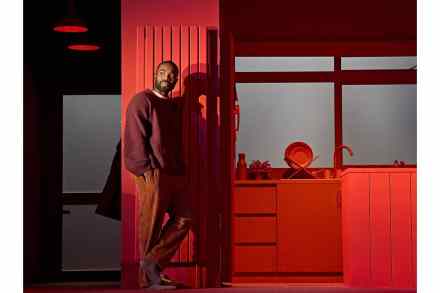A tangle of nonsense from the sloppy Caryl Churchill: A Number, at the Old Vic, reviewed
A Number, by Caryl Churchill, is a sci-fi drama of impenetrable complexity. It’s set in a future society where cloning has become possible for those on modest incomes. A Cockney father reveals to his grown-up son that he’s a replica of his older brother who died, aged four, in a car crash that also killed his mum. The son reacts with anger and bafflement. But Dad soothes him with happy news. The boy’s DNA was stolen by a gang of scientists who created 20 more copycat zombies, and these replicas are now scattered across the globe. Dad plans to cash in by suing the boffins for £5 million. No sooner




















